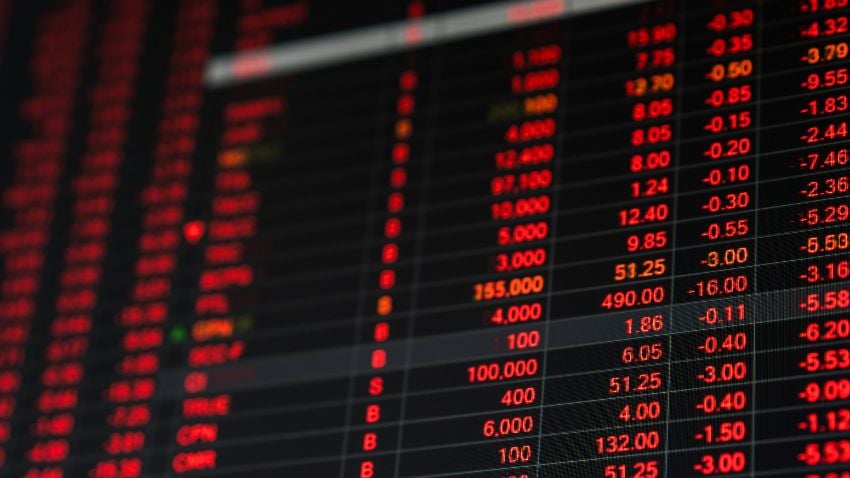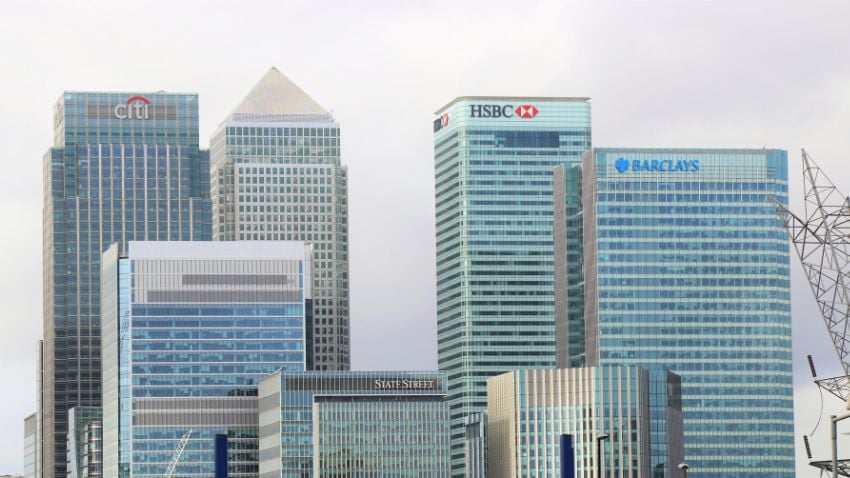Living In Singapore: Pros & Cons You Should Know
Singapore is often described as a city that works, and it totally deserves its reputation. This small island nation in Southeast Asia has built one...

6 min read
Have you ever felt the tension building before a storm hits? That's the sensation many of us are experiencing as we consider the possibility of a U.S. stock market crash in 2024. You've likely heard warnings and seen alarming headlines, but what are the implications for your finances?
We've seen similar warning signs in the past: soaring government debt and a volatile job market. Can you sense the unease permeating Wall Street?
Recall the excitement surrounding tech stocks not too long ago, promising significant returns. Now, they appear unstable and overvalued, akin to a tightrope walker without a safety net, teetering precariously.
This article aims to clarify fiscal policies and equip you with the knowledge to navigate the potential challenges posed by a stock market crash in 2024. Are you prepared to secure your financial future? Let's explore strategies to protect your earnings from economic turbulence.

Analyzing the stock market before a crash and understanding economic cycles is a way to protect yourself against a possible crash
Whispers of a stock market crash in 2024 are getting louder, and for those paying attention, the signs seem clear as day. Let's look at historical patterns and current indicators that might spell trouble.
The S&P 500 has rallied by an impressive 20% this year, but if history teaches us anything, it's that what goes up often comes down—sometimes with a thud. This sort of surge has been known to precede economic downturns more times than investors would care to remember. A peek into the New York Fed’s recession prediction model could give you chills about our near future.
Beyond indices performance, let's talk about job market flash warning signs. Job openings have taken a dive while continuing claims for unemployment benefits tick upward—signalling to tighten belts across industries.
Analyzing past performances can provide valuable insights if interpreted correctly. Sharp rallies, like the ones witnessed this year, often signal deeper underlying issues—a potentially severe recession, for instance. When even Wall Street strategists begin discussing "severe recessions," it's a clear indication of significant challenges ahead.
While some may argue that central bank rate cuts are measures to stabilize economies, likening them to life rafts in rough waters, Paul Dietrich, Briley Wealth’s chief investment strategist, offers a different perspective. Dietrich warns that these rate cuts might not address the root causes of economic instability. Historically, central banks tend to cut rates during turbulent economic times, suggesting caution is warranted to avoid being blindsided by rapid shifts in market conditions.
As we approach 2024, despite optimistic views from Wall Street strategists, the reality of escalating government debt cannot be ignored.
A significant slowdown in the economy doesn't gently alert us—it arrives abruptly. With discussions of a 'severe recession' circulating, it's evident that these concerns are substantial. Analysts foresee challenges ahead as central banks manage rate cuts and borrowing costs. However, when indebtedness outweighs income, reducing borrowing costs provides limited relief.
The UK is facing its own challenges, with rising unemployment juxtaposed against increasing borrowing figures reported by the New York Fed's model, indicating potential trouble ahead for those anticipating an economic downturn.
History often repeats itself not out of boredom but due to identifiable patterns. The S&P 500 often experiences rallies before downturns, potentially lulling investors into a false sense of security. Recently, job openings have decreased while continuing claims for unemployment benefits have risen sharply.
By examining past recessions closely, we can identify common factors such as excessive leverage and inflated valuations. These factors wait for a catalyst to trigger a significant unravelling of financial stability.
Being prudent with your finances and seeking sustainable methods to improve your financial situation may be a more advisable approach. Remember, maintaining solvency is crucial in business, so it's essential to maximize the value of every expenditure.

Banks, as integral players in the financial system, have the potential to induce market instability due to their involvement in complex debt and risk dynamics, where disruptions can swiftly lead to turbulence in the stock market
Banks, essential institutions where we entrust our savings, could play a significant role in triggering market downturns. They are involved in a complex web of debt and risk that can quickly escalate beyond containment. When banks face instability, it can induce market volatility.
In prosperous times, CCPs act as risk managers across financial markets, ensuring stability. However, during periods of uncertainty or banking instability, CCPs may struggle to maintain control. Picture this scenario: one bank faces difficulties due to excessive risk-taking, causing a ripple effect as confidence wanes among others. CCPs intervene by requiring additional collateral from banks to mitigate potential losses amid market volatility.
Yet, if a bank is unable to promptly provide the required funds (as liquid assets aren't always readily available), other banks become anxious about their own positions. This sets off a chain reaction—a frantic rush for cash that amplifies fear and hastens market downturns.
A closer look reveals rising unemployment figures whispering ominous tales about economic health—or lack thereof—with continuing unemployment claims reaching heights unseen since late 2023, The Great Taking. Such stats spell trouble for consumer spending and thus corporate profits—a grim prospect if ever there was one.
This is particularly alarming considering history shows us central banks typically slash rates early when recession signals flash red hot across dashboards—but what happens if borrowing costs are already low? The toolkit looks uncomfortably empty, while investors who've enjoyed monster gains may find themselves facing monstrous losses instead.
The volatility in the Middle East consistently impacts global markets. Each conflict in the region causes fluctuations in oil prices, which in turn disrupts market stability. The interconnectedness of events resembles a game of dominos, where one disturbance, such as heightened tensions or trade disruptions, triggers a chain reaction, influencing energy costs worldwide.
Ongoing conflicts can cause significant ripples across the pond, affecting our pockets directly. Think about it; war drums beat louder in regions rich with black gold, which then echoes through stock exchanges around the world. These sound waves shake investor confidence as they're forced to consider risk premiums on energy commodities—and let’s be honest here—it makes them sweat more than a bomb disposal expert at a fireworks convention.
The interplay between supply concerns from conflicting nations and the global demand for energy creates a dense atmosphere of uncertainty. Previous instances of crude price surges have caused market indices to plummet.
Amidst geopolitical tensions and military activities, financial strategists advocate for diversification behind closed doors. They suggest that amidst the chaos, there lies opportunity for those bold enough to seize it.
Amidst the complexity, it's crucial to remember a simple truth: wars incite fear, leading to spikes in oil prices, which in turn affect various sectors, from travel expenses to e-commerce. However, informed investors recognize that volatility can present opportunities for those who have thoroughly researched and analyzed the situation.
Related content: World War 3: Where Will Be Safe In A Global Conflict?

Bull and Bear at Frankfurt Stock Exchanges
Some observers liken today's tech stocks to an expanding balloon on the verge of popping due to their soaring valuations. There's a perception that these inflated prices may not be sustainable in the long run.
The excitement surrounding Silicon Valley has often led to irrational investment behaviour, reminiscent of the dot-com bubble era. People eagerly invest in anything associated with a '.com' or an app, hoping for lucrative returns. However, historical precedents caution against excessive enthusiasm, as such periods of hype have been followed by significant market downturns.
We've seen similar patterns before—the S&P 500 has experienced approximately 20% rallies in previous years, but such periods of exuberance often precede periods of economic downturn. Currently, warning signs are flashing red across global job markets.
This isn't just conjecture; indicators suggest that job openings have decreased while continuing claims for unemployment benefits are rising. These trends typically signal impending economic slowdowns, which can lead to significant declines in stock prices.
As concerns about a potential stock market crash grow louder, astute investors are actively seeking strategies to navigate through turbulent times. With experts closely monitoring the horizon for indicators of instability, it becomes evident that being well-prepared is essential.
In an uncertain economic environment, striking a balance between risk and reward becomes akin to walking a tightrope. As we anticipate the year 2024 with cautious optimism, our investment portfolios must exhibit both agility and resilience. Dietrich emphasizes that prudent decisions made during these precarious times can still yield significant returns.
Diversification continues to be paramount for weathering market volatility; allocating investments across different asset classes can help cushion potential losses resulting from the collapse of any single sector, particularly if tech valuations decline as anticipated. However, it's crucial to understand that diversification shouldn't entail dispersing one's portfolio to the point of obscurity.
Inflation casts a significant shadow over investment considerations, much like an unwelcome presence under the midday sun. Central banks may opt to cut rates preemptively to stimulate economic growth or counter rising borrowing expenses. However, it's important to note that these measures may not yield immediate relief; rather, they're akin to sowing seeds for future protection rather than addressing present challenges.
To safeguard against the erosive impact of inflation on wealth, one may consider tangible assets like gold or real estate. Historically, these assets have proven resilient when currency values weaken.
A significant slowdown in the economy typically leads to rate cuts by central authorities aiming to stimulate spending. However, it's important to note that market reactions often precede actual policy changes. Anticipating sectors that are likely to benefit from reduced borrowing costs, such as utilities or consumer staples, can allow investors to position themselves advantageously ahead of the curve.

Be vigilant for signs of a stock market crash in 2024 and prioritize solid investment strategies to navigate uncertain times and protect your assets
Remember that a slowing job market and rising government debt can indicate a potential stock market crash in 2024. Pay close attention to these signals as they are crucial indicators of what may lie ahead.
Reflect on the risks posed by banking instability, geopolitical tensions, and inflated tech valuations. These factors aren't just headlines; they serve as warning signs flashing red.
Develop and implement solid investment strategies to navigate through uncertain times. Protect yourself, your family, and your assets responsibly. Don't entrust your freedom, happiness, and liberty to governments that seek more control and power at your expense. Don’t waste more of your precious time. Here, at Expat Money, you will be more than prepared for whatever comes.
If you want the best intel from the expat world, including profitable offshore opportunities, little-known tax-saving strategies, and hard-won insights on immigration, passports, and Plan-B residencies, all delivered to your inbox every single week, then join our daily correspondence, EMS Pulse®. Currently enjoyed by over 84,000 expats and expat-hopefuls worldwide. Fill in the form below to join our newsletter free:

Written by Mikkel Thorup
Mikkel Thorup is the world’s most sought-after expat consultant. He focuses on helping high-net-worth private clients to legally mitigate tax liabilities, obtain a second residency and citizenship, and assemble a portfolio of foreign investments including international real estate, timber plantations, agricultural land and other hard-money tangible assets. Mikkel is the Founder and CEO at Expat Money®, a private consulting firm started in 2017. He hosts the popular weekly podcast, the Expat Money Show, and wrote the definitive #1-Best Selling book Expat Secrets - How To Pay Zero Taxes, Live Overseas And Make Giant Piles Of Money, and his second book: Expats Guide On Moving To Mexico.

Singapore is often described as a city that works, and it totally deserves its reputation. This small island nation in Southeast Asia has built one...

Panama’s geographic size is modest, but its global relevance is not. The country connects two oceans and two continents, operates on a dollarized...

Honduras’ newly elected president, Nasry Asfura of the conservative National Party, was sworn in on January 27, 2026. The election, held on November...